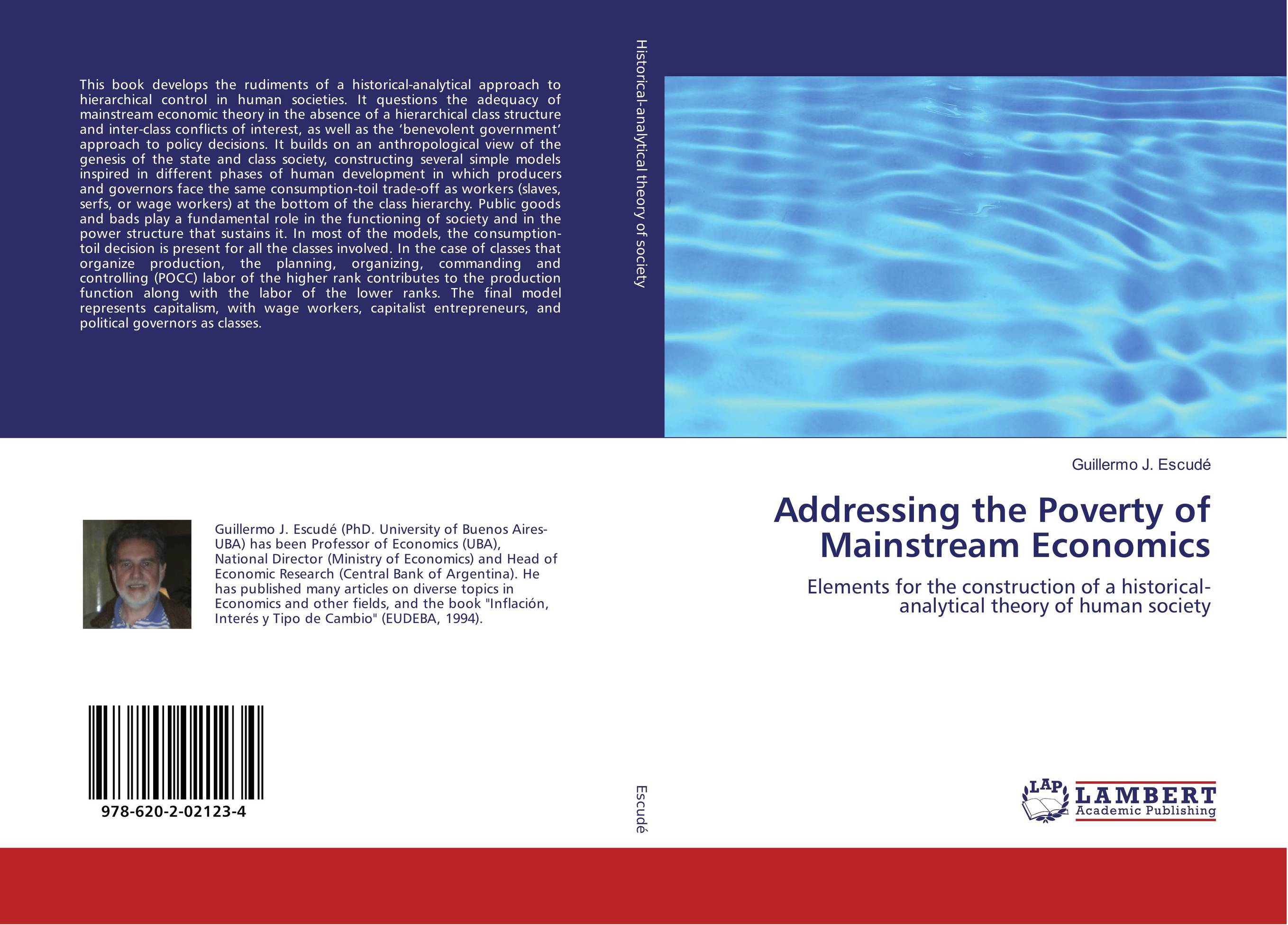| Поиск по каталогу |
|
(строгое соответствие)
|
- Профессиональная
- Научно-популярная
- Художественная
- Публицистика
- Детская
- Искусство
- Хобби, семья, дом
- Спорт
- Путеводители
- Блокноты, тетради, открытки
Addressing the Poverty of Mainstream Economics. Elements for the construction of a historical-analytical theory of human society

В наличии
| Местонахождение: Алматы | Состояние экземпляра: новый |

Бумажная
версия
версия
Автор: Guillermo J. Escud?
ISBN: 9786202021234
Год издания: 2017
Формат книги: 60×90/16 (145×215 мм)
Количество страниц: 172
Издательство: LAP LAMBERT Academic Publishing
Цена: 28155 тг
Положить в корзину
| Способы доставки в город Алматы * комплектация (срок до отгрузки) не более 2 рабочих дней |
| Самовывоз из города Алматы (пункты самовывоза партнёра CDEK) |
| Курьерская доставка CDEK из города Москва |
| Доставка Почтой России из города Москва |
Аннотация: This book develops the rudiments of a historical-analytical approach to hierarchical control in human societies. It questions the adequacy of mainstream economic theory in the absence of a hierarchical class structure and inter-class conflicts of interest, as well as the ‘benevolent government’ approach to policy decisions. It builds on an anthropological view of the genesis of the state and class society, constructing several simple models inspired in different phases of human development in which producers and governors face the same consumption-toil trade-off as workers (slaves, serfs, or wage workers) at the bottom of the class hierarchy. Public goods and bads play a fundamental role in the functioning of society and in the power structure that sustains it. In most of the models, the consumption-toil decision is present for all the classes involved. In the case of classes that organize production, the planning, organizing, commanding and controlling (POCC) labor of the higher rank contributes to the production function along with the labor of the lower ranks. The final model represents capitalism, with wage workers, capitalist entrepreneurs, and political governors as classes.
Ключевые слова: Capitalism, income distribution, Models of class structure, Class hierarchy in history, Public goods and bads, Political power distribution



